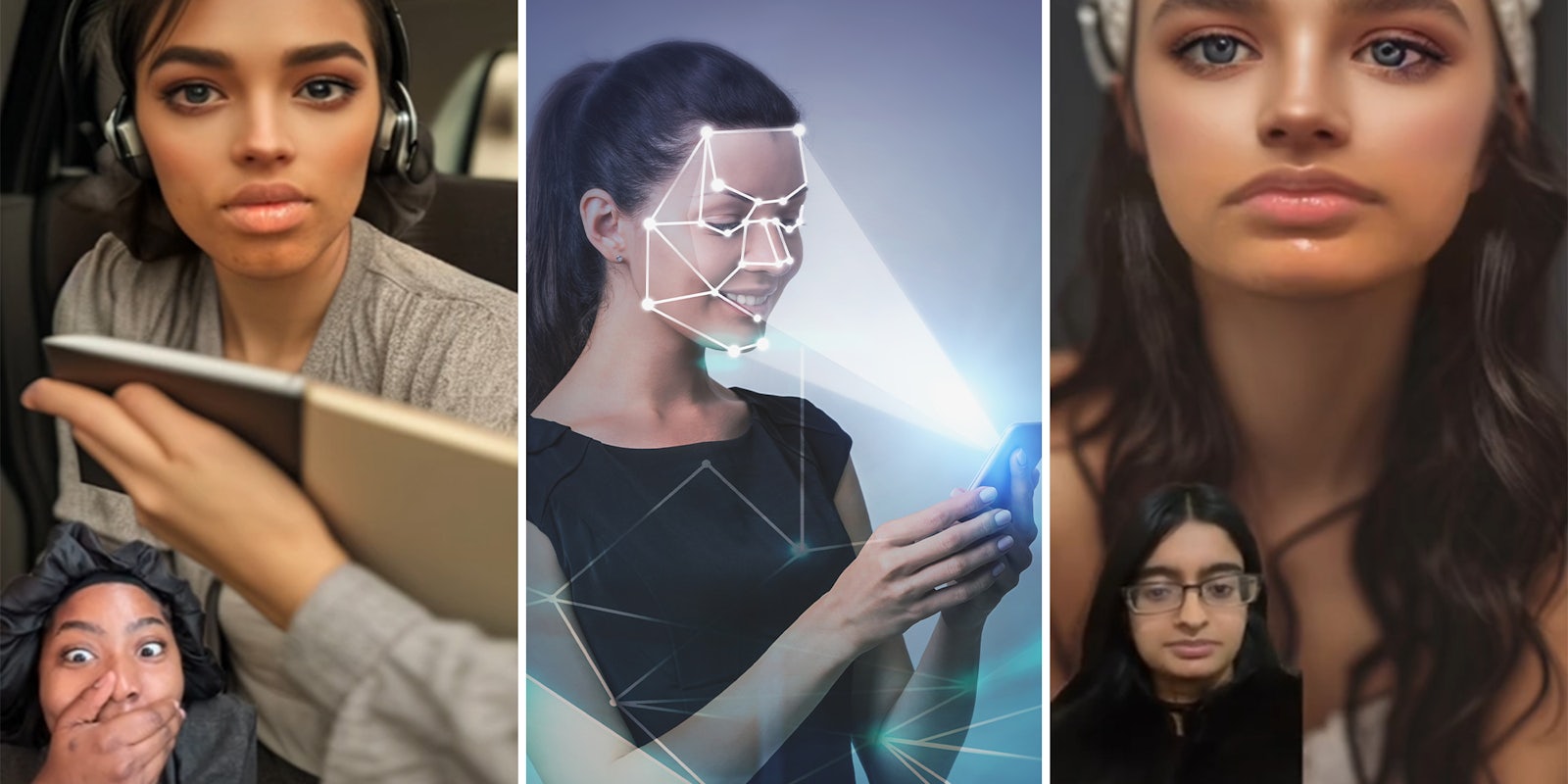In each edition of web_crawlr we have exclusive original content every day. On Tuesdays our IRL Reporter Tricia Crimmins breaks down the trends on the popular app that will make you cringe in her “Problematic on TikTok” column. If you want to read columns like this before everyone else, subscribe to web_crawlr to get your daily scoop of internet culture delivered straight to your inbox.
As this year has been “the year of AI,” multiple installments of this column have focused on how artificial intelligence is biased. I’ve also done reporting on the ways in which artificial intelligence is discriminatory toward people of color and people with disabilities.
Thus, it was no surprise to me that TikTok’s new ‘AI Outpainting’ feature would be as racist and prejudiced as other generative artificial intelligence tools. In fact, when I first came across the filter, I thought I might eventually see people of color saying that the filter had whitewashed them—unfortunately, it was only a matter of time.
‘AI Outpainting,’ a TikTok filter that went viral over the weekend, takes user uploaded photos and “paints” around them, or generates what it “thinks” the rest of the image would look like. TikTokers have been uploading images of their eyes and asking the filter to create what it thinks the rest of their face might look like.
When white TikTokers input a photo of their eyes, the filter usually gives them a photo of an AI-generated white person who has their eyes. But when people of color have done the same, AI Outpainting produces a photo of an AI-generated person with lighter skin than them with more Eurocentric features.
“Turning everybody white,” a commenter wrote on a Black TikToker’s video about the filter.
“AI doesn’t believe in Black people,” another said. “I kept getting vaguely brown people as well.”
“AI is so biased towards white flesh still,” a third commenter wrote. “It’s disappointing.”
Why it matters
It is disappointing, and will only become further disappointing as more and more content that we see online is AI generated.
And even though (racially biased) content is AI-generated, it can contribute to a whiter, more prejudiced world. Take SmashorPass AI, a site that allows users to rate the physical attractiveness of AI-generated women, or a photo-combining baby filter on TikTok. When real people engage with AI-generated photos that look like people, it can influence their views of the real, offline world.
Keep in mind AI’s limitations and harmful patterns when using it and call it out when you see biased AI-generated content.



